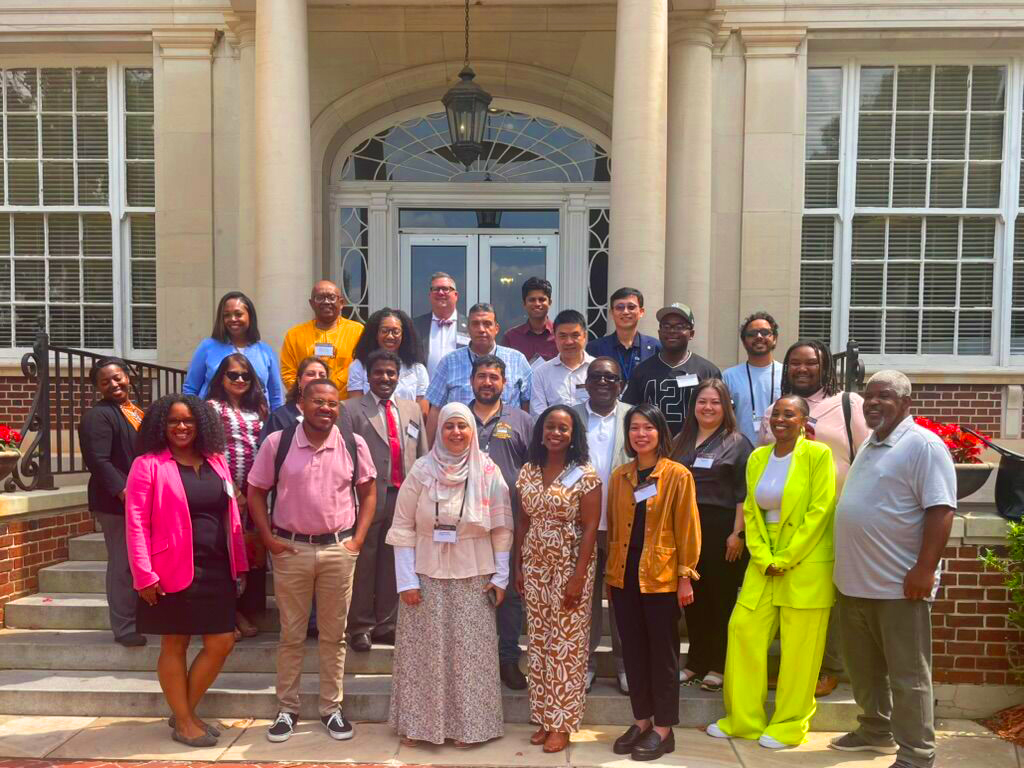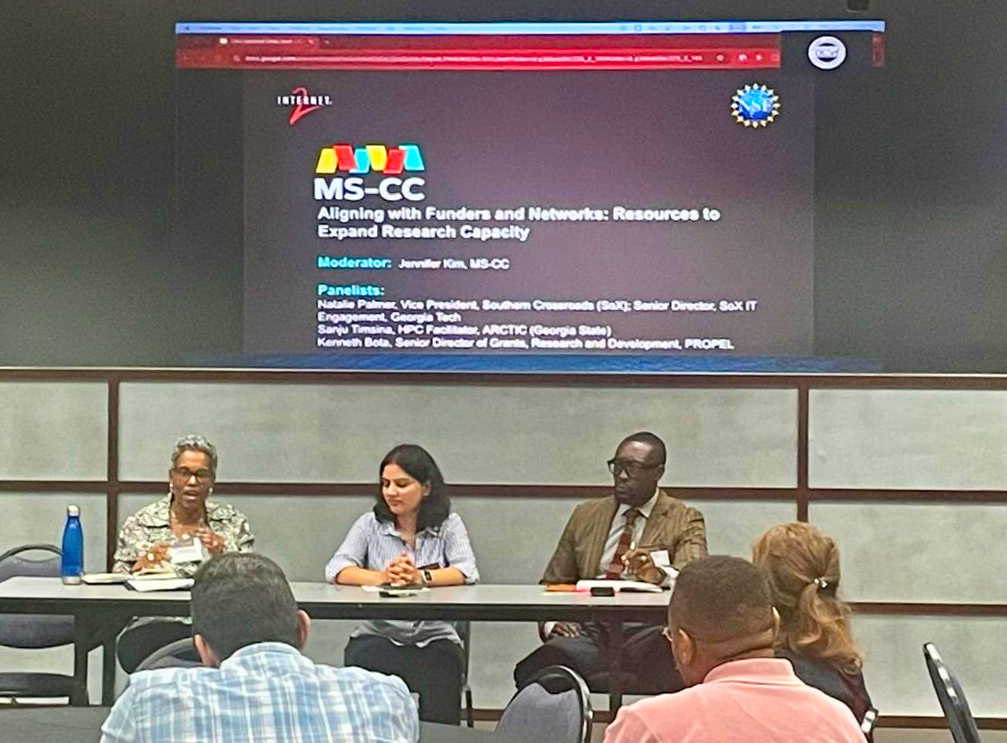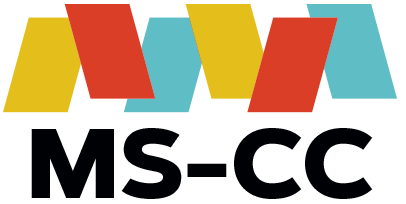By Amanda Tan, Associate Director, MS-CC Research Development
Two days. Dozens of researchers. One mission: bridging the gap between cutting-edge cyberinfrastructure and the real-world challenges facing our communities.
The MS-CC Planetary Resilience Workshop at Clark Atlanta University (June 11-12, 2025) wasn’t your typical academic gathering. Faculty, students, and technologists from HBCUs came ready to roll up their sleeves and dive deep into the tools reshaping research.

Hands-On Experience with Transformative Technology
The recent MS-CC Workshop at Clark Atlanta University (CAU) focused on hands-on experience with the technology that’s transforming how we approach environmental research, sustainability studies, and digital humanities.
The morning sessions started with the basics about cyberinfrastructure. By afternoon, participants were exploring inter-campus collaborations and learning how to align their research with significant funding opportunities. Our panels featured practitioners sharing fundamental strategies for expanding research capacity.
Day two shifted into high gear with a focus on AI applications for community resilience. The faculty workshops on collaboration tools and curriculum development provide opportunities for knowledge sharing and making connections. One participant captured it perfectly: “I loved learning how to run programs on GitHub and seeing how they connect to real research problems.”
However, what made our time together special was the integration of digital humanities alongside the hard sciences. Literature professors got excited about data visualization tools. At the same time, computer scientists discovered new applications for their work in community resilience—that’s the kind of cross-pollination that creates breakthrough research.

Tools That Matter, Progress that Starts Now
Sure, we introduced the big players – how to work with supercomputers, how to connect to RENs and how to use Jupyter Notebooks and GitHub, but the real breakthroughs came when participants began applying these platforms to their own research questions:
- Mapping flood risk in underserved communities
- Analyzing environmental and social trends impacting agriculture
- Building accessible digital archives for cultural preservation
- Creating collaborative research networks across institutions
The hands-on format paid off. Before the workshop, most participants rated their confidence with cyberinfrastructure tools at a 1 or 2. Afterward? They were at 4s and 5s—ready to implement what they learned.
But this was more than a skills training. Participants were building connections, sharing ideas, and laying the groundwork for long-term research partnerships.
The excitement wasn’t just about the tech—it was about seeing how cyberinfrastructure can amplify the impact of work already underway at HBCUs and MSIs. Whether it’s helping a public health researcher map environmental hazards or supporting a historian in creating an interactive exhibit, we’re not just teaching tools—we’re unlocking new possibilities.
What excites us most isn’t what happened in those two days at Clark Atlanta. It’s what’s happening next. Participants left with concrete plans to:
- Launch new research collaborations across institutions
- Integrate CI tools into their teaching
- Apply for funding using their new knowledge
- Build local capacity at their home institutions
That’s how we create lasting change—one workshop, one connection, one “aha!” moment at a time.
Our Thanks
To Clark Atlanta University for hosting us, to speakers who shared their expertise, and to the participants who brought their curiosity and energy—you made this happen. This is exactly the kind of collaborative learning that builds research capacity where it matters most.
Ready to get involved? The next workshop is already in the works, and our CI Planning Community of Practice is growing. Learn more about getting involved with the MS-CC community. Because important research happens when we lift each other up and grow together.
